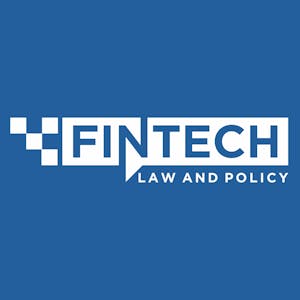Explore the critical legal, regulatory, and policy issues impacting the FinTech industry with the "FinTech Law and Policy" course from Duke University. This course equips participants with a deep understanding of the laws and regulations governing cryptocurrencies, initial coin offerings, online lending, payment technologies, wealth management, and financial account aggregators.
This course is designed to familiarize participants with the key legal and regulatory challenges facing FinTech firms and to provide an understanding of the critical policy debates occurring in Washington D.C. and state capitals across the country.
Certificate Available ✔
Get Started / More Info
The course modules cover a wide range of topics, including the evolving relationship between FinTech firms and regulators, cryptocurrency and initial coin offerings, FinTech lending, banking regulation in the U.S., and FinTech payments, wealth management, and account aggregation.
Welcome to FinTech Law and Policy. This module provides an introduction to the course, defining FinTech and offering essential course information. It also includes a legal disclaimer.
Explore the evolving relationship between FinTech firms, regulators, and traditional financial institutions. Gain insight into regulatory challenges, investment trends, and how FinTech is challenging regulators, as well as the concept of regulatory sandboxes.
Delve into the world of cryptocurrency and initial coin offerings, including the regulation of cryptocurrency as money, commodity, and property, as well as the regulations surrounding initial coin offerings.
Understand the legal and regulatory considerations surrounding FinTech lending, including the U.S. and global landscape, common lending models, vulnerabilities, and additional legal considerations.
Explore banking regulation in the U.S., covering the creation and regulation of banks, special purpose FinTech charters, and industrial loan companies.
Dive into the world of FinTech payments, wealth management, and account aggregation, including traditional payment systems, mobile payment developments, faster payments in the U.S., and financial account aggregators.
This specialization delves into the rapidly evolving world of financial technologies, exploring innovations in payment systems, blockchain, credit technology, and...
Accounting for Decision Making provides a comprehensive understanding of financial statements and accounting principles, equipping learners with the skills to analyze...
Introduction to Portfolio Construction and Analysis with Python is an essential course for understanding modern computational methods in investment management. Gain...
This course introduces the time value of money and decision-making frameworks for valuing businesses from a societal perspective.